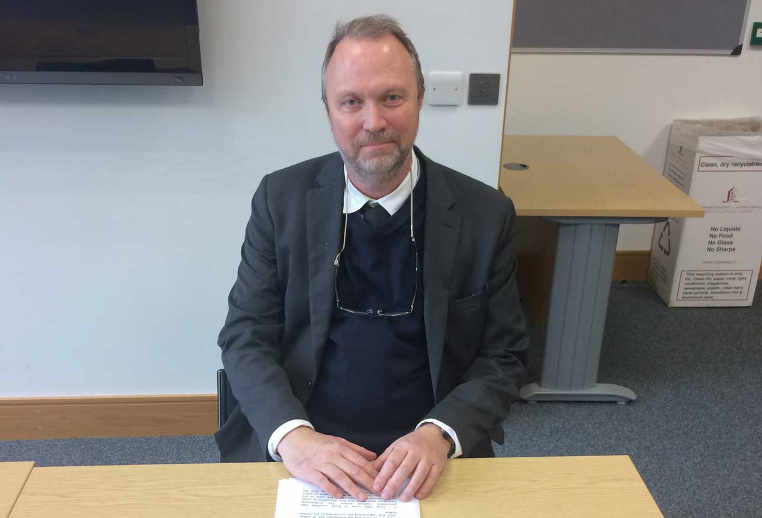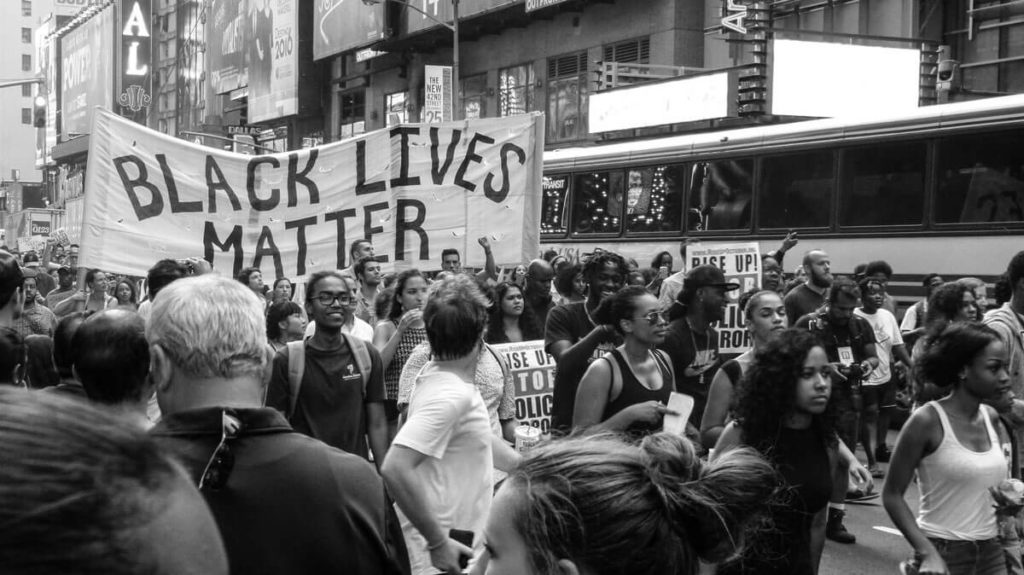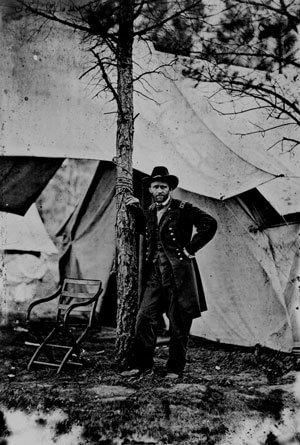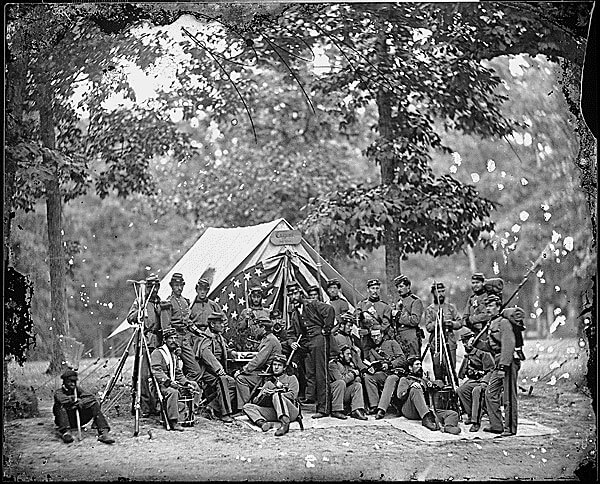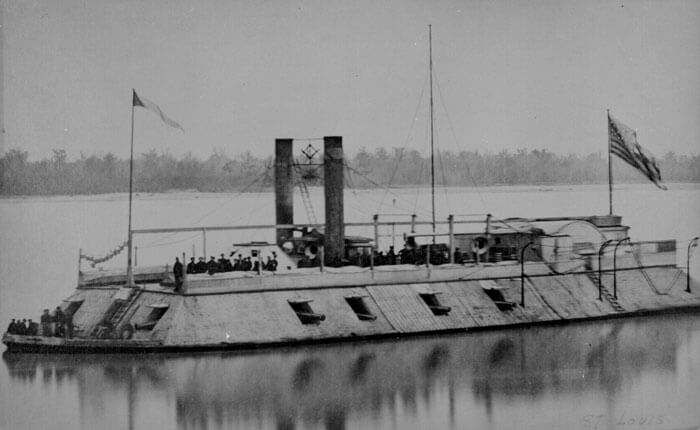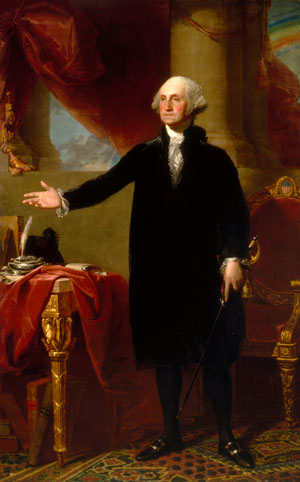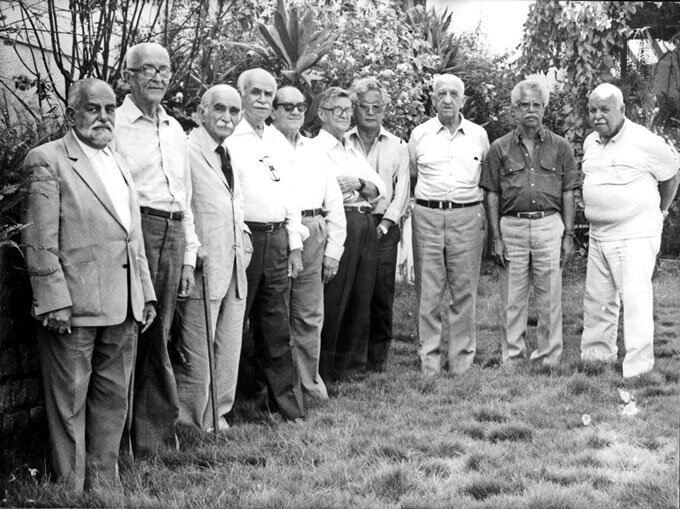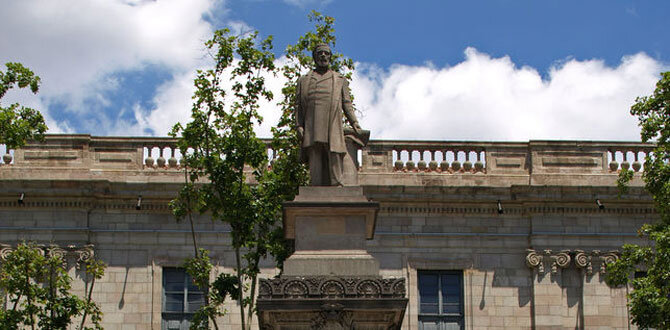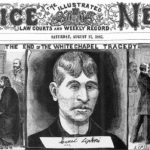The 6th of January will leave a lasting mark on the political history of the U.S.A.. A mob, opposed to the defeat of Donald Trump in the 2020 presidential election invaded the Capitol, in session to validate Biden’s victory. Five people died in the riot, which was decorated with political symbols from the past – the Confederate flag, folk costumes and even Nazi emblems.
We interview historian Vitor Izecksohn, whose “United States, a history”, (Editora Contexto) has appeared opportunely. The book is aimed at the general public, especially one wishing to understand the processes that marked American society during its first 100 years of existence. The past may not provide answers to all the confusion of the present but it does go some way to understanding the authoritarianism, resentment and fury which has stalked the country in recent years.
“The United States, a history” covers the first 100 years of the country. From Independence to the Civil War, via the country’s reconstruction process in the 19th century, the author examines the founding of party systems, the emergence of institutions, territorial expansion, political unity and the expansion of rights amongst classes, genders and ethnicities. This is the period when the idea of nation, politics and American identity will be forged.
Vitor Izecksohn is assistant professor of American History in the Dept. of History, Federal University of Rio de Janeiro (UFRJ) and a contributor to Café História. He shared a debate on U.S. History with historian Arthur Lima de Ávila, professor of history at the Federal University of Rio Grande do Sul (UFRGS), for Café História TV,
It is not easy to prepare a work of historical synthesis, as. many difficult choices must be made. In “United States, a history”, you have focussed on the 18th and, mainly, the 19th century. Why?
I’ve been wanting to publish a work like this for years. Without footnotes it is challenging to write for a wider audience, especially on such specific themes in the history of the United States. The book covers the interval between Independence and the end of Reconstruction (after the Civil War). I focus on that period because it was fundamental for the consolidation of a competitive party system, for the affirmation of a society based on free labour, for territorial expansion and for the strengthening of a nation state with expanded powers. Plus it’s my favourite period for study.
There is fine work produced in Brazil on this period in the United States, Mary Junqueira, for instance. And there are also several comparative works, mainly focusing on slavery, which was an institution common to both Brazil and Cuba. This tradition was strengthened by studies of the Second Slavery through, among others, Ricardo Salles and Rafael Marquese.
I have chosen to emphasise the three party systems that have marked the country’s history and the influence of these associations on behaviour in public life, not only because the United States is the first mass democracy (even though blacks, Indians and women were excluded), but also because the parties have become national institutions in a republic based on strong state autonomy. So, political parties have replaced bureaucracy when it comes to forming stable administrative routines and it seemed important to me to emphasize these little discussed issues when dealing with that period.
In your view did the issue of slavery carry even greater weight in the outbreak of the Civil War? Was there another agenda?
American historiography, especially the Progressivist school, believed that the causes of the Civil War were economic – some these authors even ignored slavery. If you read the classic text by Frederick Jackson Turner, one of the most influential historians of the United States between the late 19th and early 20th centuries, slavery on the West frontier does not exist. Alternatively, pro-Southern historians saw the conflict as a result of party greed or the ambition of a group of opportunists. There have always been historians, such as W. E. B. Du Bois, who pointed to slavery as the main reason for the Civil War, but these writers had no place in scholarship.
For the last 50 or 60 years, the view of slavery as decisive in the outbreak of the War has become virtually unanswerable. In fact, as various studies point out, there were several channels for economic integration between the free North and the slave South in the period before the conflict. To ensure peace and privilege, party leaders from both regions made several commitments to preserve the integrity of the Union throughout the first half of the 19th century. In other words, the Civil War was not an inevitable consequence of the differences between these two regions. However, the expansion of slavery to the West, accelerated from the 1790s on, gradually disturbs this accord, becoming the main destabilizer to the agreements signed in the 1788 Constitution and those following. This phenomenon created the perception in the public opinion of the North, during the period after the end of the war against Mexico, from 1848 onwards, that slavery could control the government (which, in a way, the slave traders already did), discrediting the value of free labour.
For their part, Southern slave leaders feared that a republican government would weaken their grip on the enslaved, and so prompt a rebellion that would destroy their racially structured hierarchy. So despite the guarantees that the future President initially offered to slaveholders in the South, the election of Abraham Lincoln in 1860 gave impetus to the most radical groups in those states, which often imposed secession on the majority. The decision to go to war to restore the Union was an outcome of Lincoln’s design and republican leadership. There were those who advocated simply letting those states separate. The ideal of a unified republic prevailed, as the President expressed in the Gettysburg Address (1863), declaring: “that government of the people, by the people, for the people, shall not perish from the earth”.
It was a devastating war, wasn’t it? Was it the “first modern war”?
It was a war of enormous dimensions, involving several million soldiers on both sides. Particularly, from 1863 onwards, the objective of the Union forces became the destruction of the Southern state. Episodes such as General Sherman’s march from Atlanta to Savanna, the devastation of several cities and the growing number of refugees show the contours of a modern war, in which civilian populations become a preferred target for military action.

Black Lives Matter protesters in NY, 2016. Movement faces past and present. Photo: Nicole Baster (Unplash). 
Ulysses S. Grant, Cold Harbor, Va. NARA. Local identifier: 111-B-36. Local identifier: 524455. 
Engineers from the 8th New York State Militia in front of a tent, 1861. Local identifier: 111-B-499. National file identifier: 524918. 
First armored gunboat built in America. Saint Louis. Local identifier: 165-C-630. National file identifier: 533123. 
George Washington portrait. 1796 canvas, by Gilbert Stuart. Source: public domain; Three Confederate prisoners from the Battle of Gettysburg, July 1863. 200-CC-2288. National file identifier: 559274
Although its like had not been seen before, the conflict cannot be described as “total”, as the warring states found it difficult to amass necessary resources for the campaigns. The South was severely hampered by the firm autonomy of its member states. In the North, recruitment often had to be halted because communities refused to cooperate. In the absence of recruiting institutions, there was much negotiation between authorities and citizens. In this regard, the Republican party’s presence in the states was instrumental in maintaining at least minimum quotas for soldiers during crucial periods. But were it not for the abolition of slavery and the recruitment of almost 200,000 black soldiers, the Union would hardly have had enough men to defeat and militarily occupy the South. So, there were several routines, the execution of which was still incomplete.
In the book, you devote plenty of space to the Civil War, given its importance for the country’s historical development. But how important was this event for the geopolitics of the time?
The American Civil War was part of the global federative crisis, which encompassed the liberal European revolutions of 1848 and is reflected in the War of Reform in Mexico, civil strife in Argentina and in the wars over Italian Unification. The following years saw established a new concept of nation, forcing demands for the creation of a stronger federal state. The ideals that moved the North chimed with the messages of the 1848 European liberal revolutions – and it is no coincidence that many European exiles, especially Germans, fought with the armies of the Union. now in fact, a republic – not as a loose affiliation of states. This action was in the interest of free farmers, traders and industrialists, who formed the great republican alliance.
Later, things changed, just as the role of the Republican party would change [1]. But between 1854 and 1876 these groups benefited from the strengthening of central government. Thus, the Republicans oversaw a temporary merger between the party and the state that forced a gigantic advance in the modernizing agenda – a mandate deep enough to yield a radical transformation in the foundations of the Republic.
The U.S. Civil War was part of a brutal upsurge of warfare in the 19th century. Some historians refer to the 1860s as the “bloody” decade, due to the many conflicts on almost all continents, ranging from the rebellion in India (1857) to the Paris Commune (1871). In the Americas alone, we have the War of Paraguay, the Mexican Wars of Reformation, the French and Spanish invasions of Mexico, the Spanish intervention in the Dominican Republic and the Ten Years War in Cuba. Then there were international wars with elements of the civil, and civil strife that evolved into international conflicts. Violence was widespread across the Atlantic.
In the final part of the book, you talk about “battles for reconstruction”. What were they?
The term “Reconstruction” was devised by historian Eric Foner. to denote the movement for the incorporation of blacks into American society through the extension of a set of rights. at the end of the war Here was a brief experiment in multiracial democracy in the South. Many authors take it that Reconstruction had its roots in the conflict, with mass breakouts and the arbitration of labour relations in the South by the army. Perhaps it was a unique phenomenon in slave societies, where public authorities sought to respond to the protests of ex-slaves for land, voting and freedom of movement. But this movement faced a series of hurdles set by victorious authorities, while there was a lack of serious compromise, as the Republican Party was split, and the army failed to deploy effectively against the attacking menace from former slaves. Nor did Reconstruction reach the West, where extermination of native Americans would continue until the 1890s. Finally, it fell foul of Confederate nationalism, which survived the Confederacy’s debacle. Thus, the old adage that “the South lost the war, but won the peace”. And in fact, the supremacist forces imposed, through violence and intimidation, a racist system that would mark the public life of the United States to this day.
Despite the setback known as the “Redemption”, we might say that Reconstruction created a precedent for the intervention of the federal government for black advantage, an expedient to be revived during the Civil Rights campaign 100 years later,. Thus, despite having failed in the medium term, a base for the future was created. Du Bois’ book, “Black Reconstruction in America, 1860-1880”, is essential for understanding the dilemmas of the time. Unfortunately, both this work and Eric Foner’s texts such as “Reconstruction: America’s Unfinished Revolution”, have not been translated into Portuguese. In fact, there are few works about this period in translation. For example, none of the so-called “Slave Narratives”, which were autobiographical accounts from fugitive men and women describing the horrors of the enslaved South, have yet to be translated into Portuguese.
Why is there polarization between Republicans and Democrats in the United States electoral system? It has always been like that?
The United States’ leaders of independence (better known as “Founding Fathers”) did not presage the existence of political parties, which they viewed as elements of a factional system. Such parties appeared, motivated by the demands for political participation of white adult men, and for their aim to control over matters affecting their lives and desires. But already in the 1790s, two parties emerged from an elite schism: the “Federalists” and the “Jeffersonian Democrats”. During the 1820-30s, a new party system emerged, made up of Democrats and Whigs, creating a more modern, competitive electoral order. It is also known as “Jacksonian Democracy” in reference to President Andrew Jackson, one of the founders of the Democratic Party. The current system, which is the third, arose during the 1850s, when the debate over territories taken from Mexico regionalized the political discourse. It is curious to note that at that time the Republicans were the reform party, while the Democrats maintained close ties with the former slave groups in the South, a fact that many current Democratic leaders would prefer to forget.
Along the trajectory of the USA, there have been attempts to create “third parties”, such as populists and progressivists, usually led by charismatic figures. But the structure of the Electoral College, created in 1788, prevented these parties from establishing themselves permanently and nationally, although it is not uncommon to find parliamentarian independents in Congress and the Senate today. The electoral structure also reinforced the non-ideological nature of political parties, in contrast to European groupings.
At the beginning of 2021, we saw a violent invasion of the Capitol. How far can this be seen as disruptive in American political history?
I see it as a desperate act by factions of the poor, white population and their representatives from among the highest income groups. The USA is being overtaken by China as the main global industrial power, a state of affairs perceived by people impacted by the changes as decay. There is also the perception that the white population will become a minority, through the growing diversification of the country’s ethnic composition, which is a statistical fact. For many whites from the South and from de-industrialized areas in the North and West, the pleas of Donald Trump and his followers for supposed “traditional values” of grandeur becomes relevant, against a background where several mainstay professions of the manufacturing world have ceased to exist.
The unyielding grip on the past, which survives in movements that revere the Confederacy and a time marked by race hierarchies, must not be neglected either. These sectors react violently to ongoing change because they feel more unequal when they see opportunities opening up to other ethnic groups. The US has been going through a long period of turmoil for some time. But the country has already overcome so many challenges that it seems likely that some form of balance will be established in the medium term. I remember the 1970s, when some Brazilian economists predicted that Japan’s hegemony would lead to the collapse of the United States. These predictions were not fulfilled, however wished for by some. The fact is that social networks have greatly changed the way politics is done. This is a global movement. The USA is at the tip of the iceberg.
How to cite this interview
IZECKSOHN, Vitor. We need to talk about the history of the United States (Interview). Interviewer: Bruno Leal. In: Café História. Available at: https://www.cafehistoria.com/precisamos-falar-sobre-a-historia-dos-eua/. Published: Ouc 03 2021. ISSN: 2674-5917. Translated from Portuguese by TiraTEXT UK.

